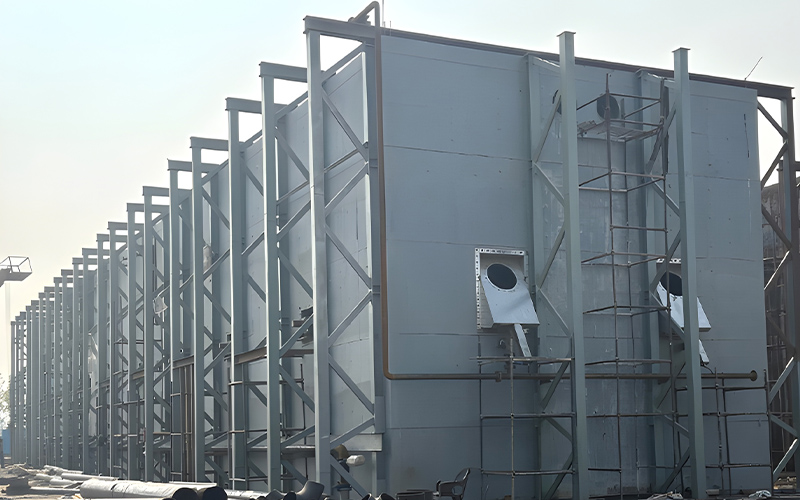
CBG- Compressed Biogas
A 15 TPD compressed biogas plant, which can be expanded up to 25 TPD, is ready for trial production. The trial production is expected to start in March 2025. The optimization process will be over by July 2025. The CBG plant will be completed in record time as promised to the investors. The installation of the gas pipeline will ensure a nonstop supply of CBG. Purified and compressed gas as Compressed Bio Gas (CBG), boasting over 96% methane content, will be produced. It will add 35 Cr to the revenues and add more than 10 Cr to the bottom line in FY 2025-26. The full impact of the funds utilized will be seen in FY 2025-26.
1. Highly Efficient Green Fuel
Purified and compressed as Compressed Bio Gas (CBG), boasting over 90% methane content.
Exhibits calorific value and properties akin to Compressed Natural Gas (CNG).
2. Versatile Renewable Energy
Ideal for green automotive fuel, offering a sustainable alternative to CNG.
Abundant biomass availability positions CBG as a viable replacement in automotive, industrial, and commercial sectors.
3. Enormous Potential in India
Estimated CBG potential in India reaches nearly 62 MMT, with a substantial bio-manure generation capacity of 370 MMT.
4. Flexible Transportation Options
Conveniently transported to retail outlets through cylinder cascades or pipelines.
Government endorsement through Gazette Notification allows the use of bio-compressed natural gas (bio-CNG) as an alternate composition for motor vehicles.
CBG—THE BENEFITS
Rural Empowerment & Economic Growth
■ Provides additional revenue sources for farmers and fosters rural employment.
■ Contributes to the amelioration of the rural economy through responsible waste management and sustainable practices.
National Commitments & Sustainable Practices
■ Advances national climate change goals and supports the Swachh Bharat Mission.
■ Acts as a buffer against energy security concerns and price fluctuations, lowering pollution and carbon emissions.
Energy Security & Environmental Impact
■ Reduces reliance on natural gas and crude imports.
■ Utilizes agricultural residue, cattle dung, and MSW for CBG production, reducing emissions and pollution.
